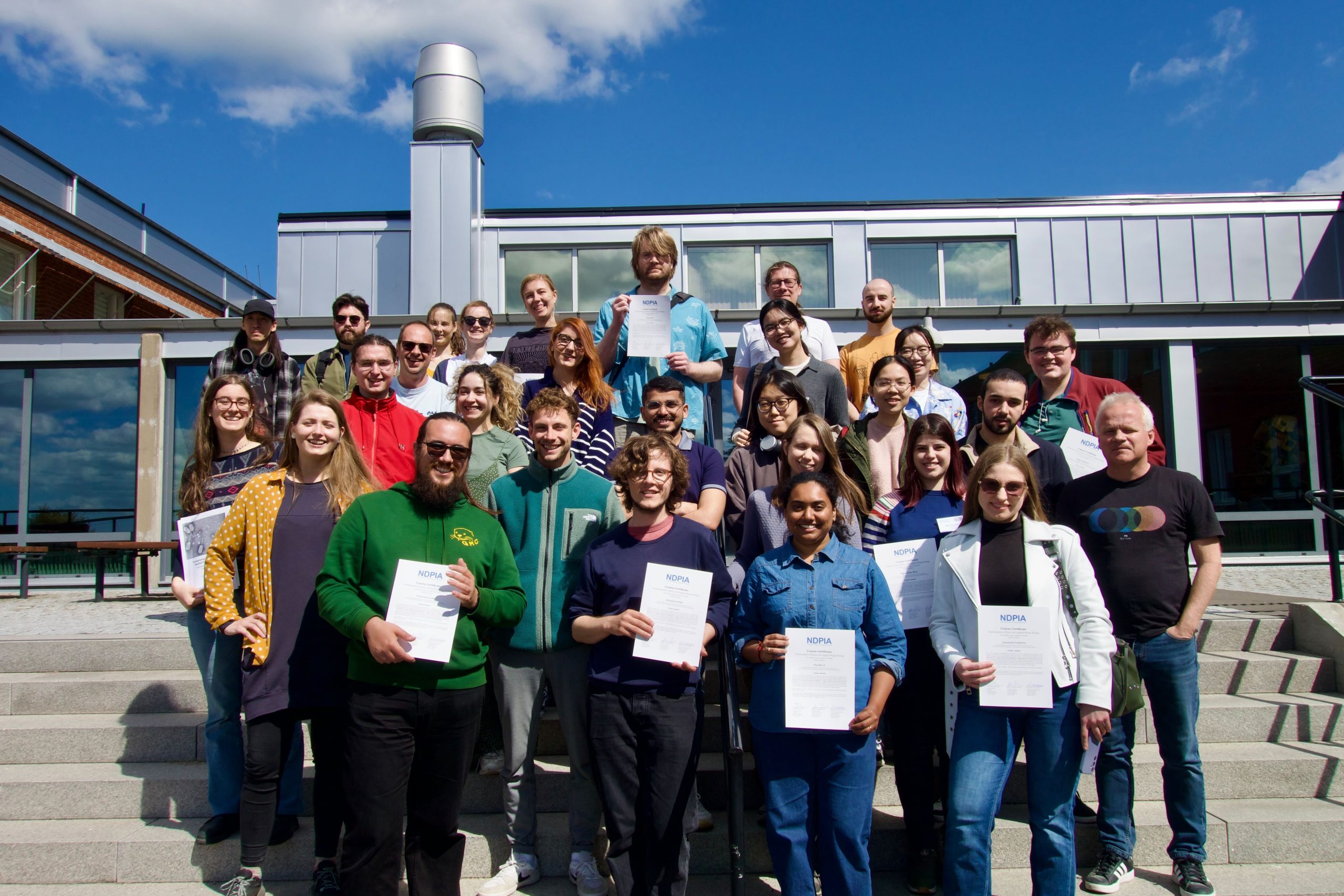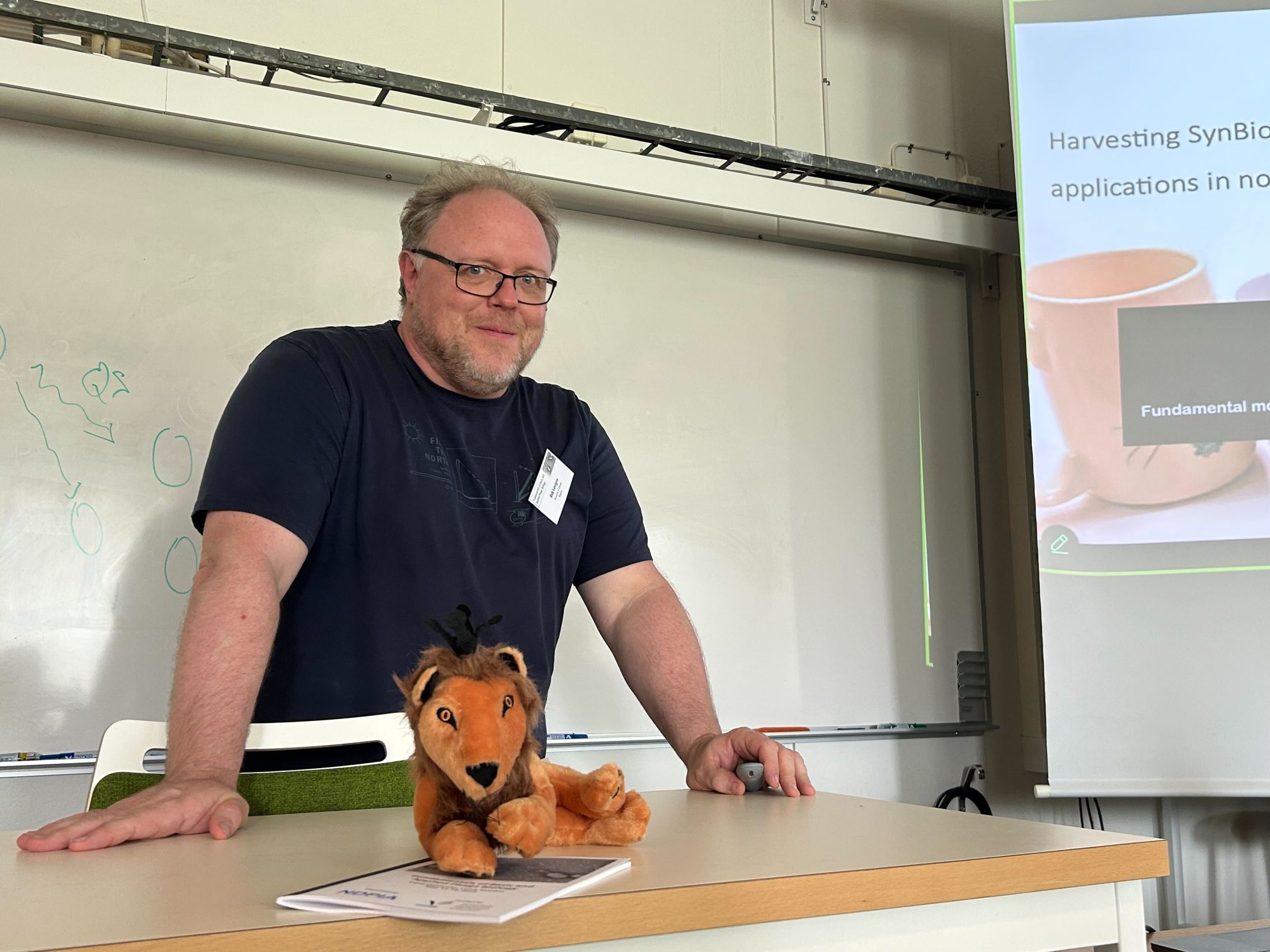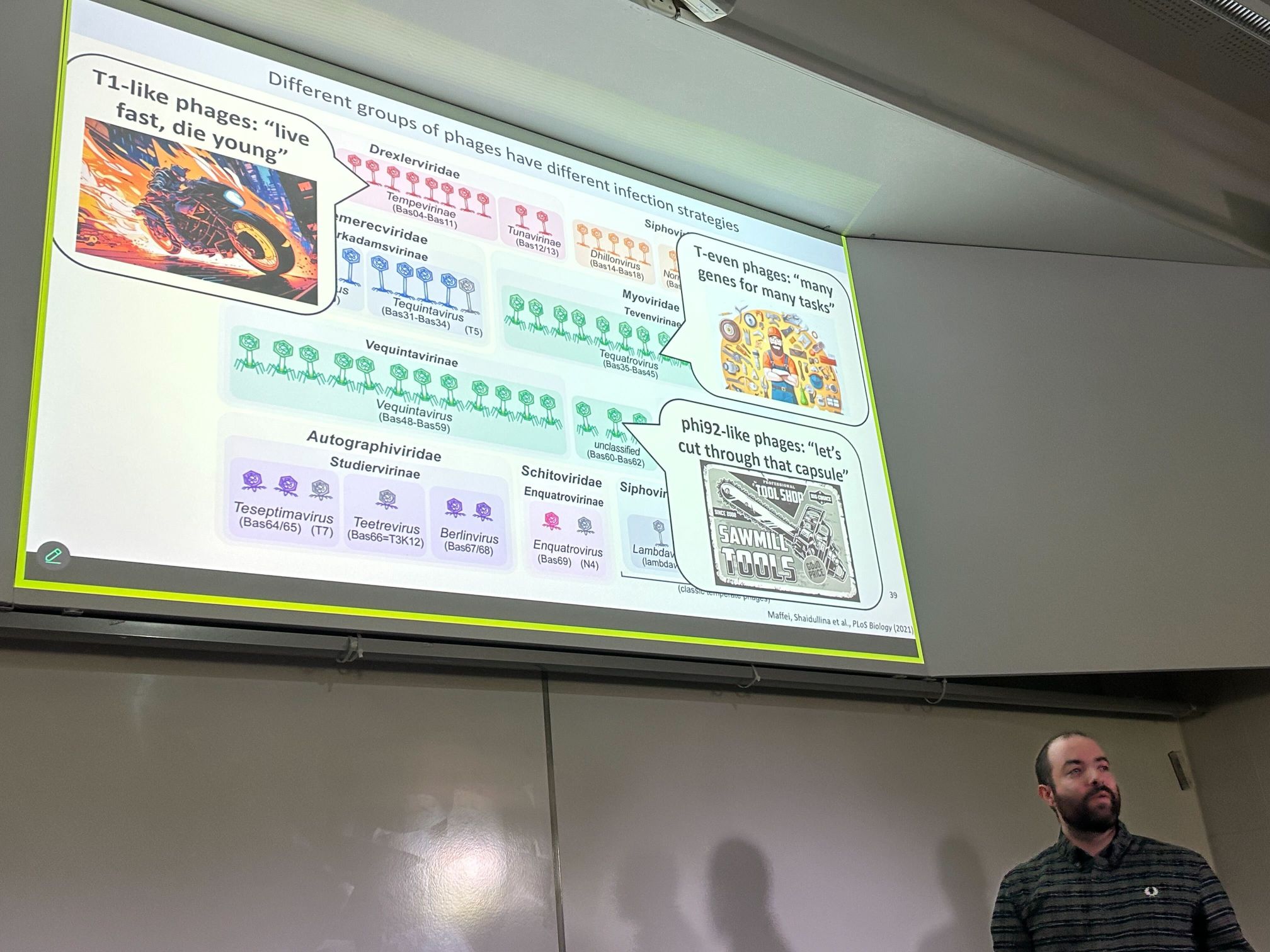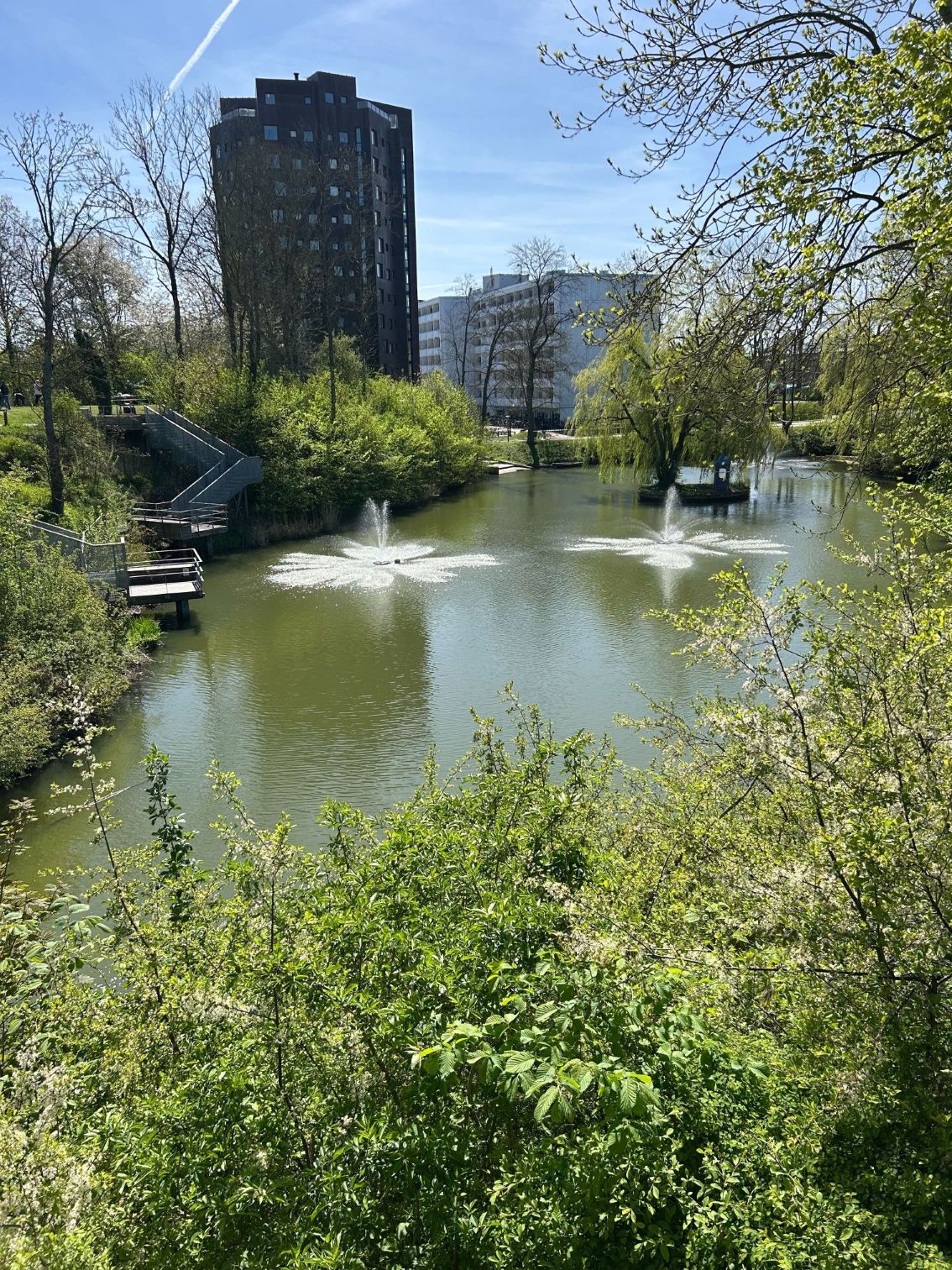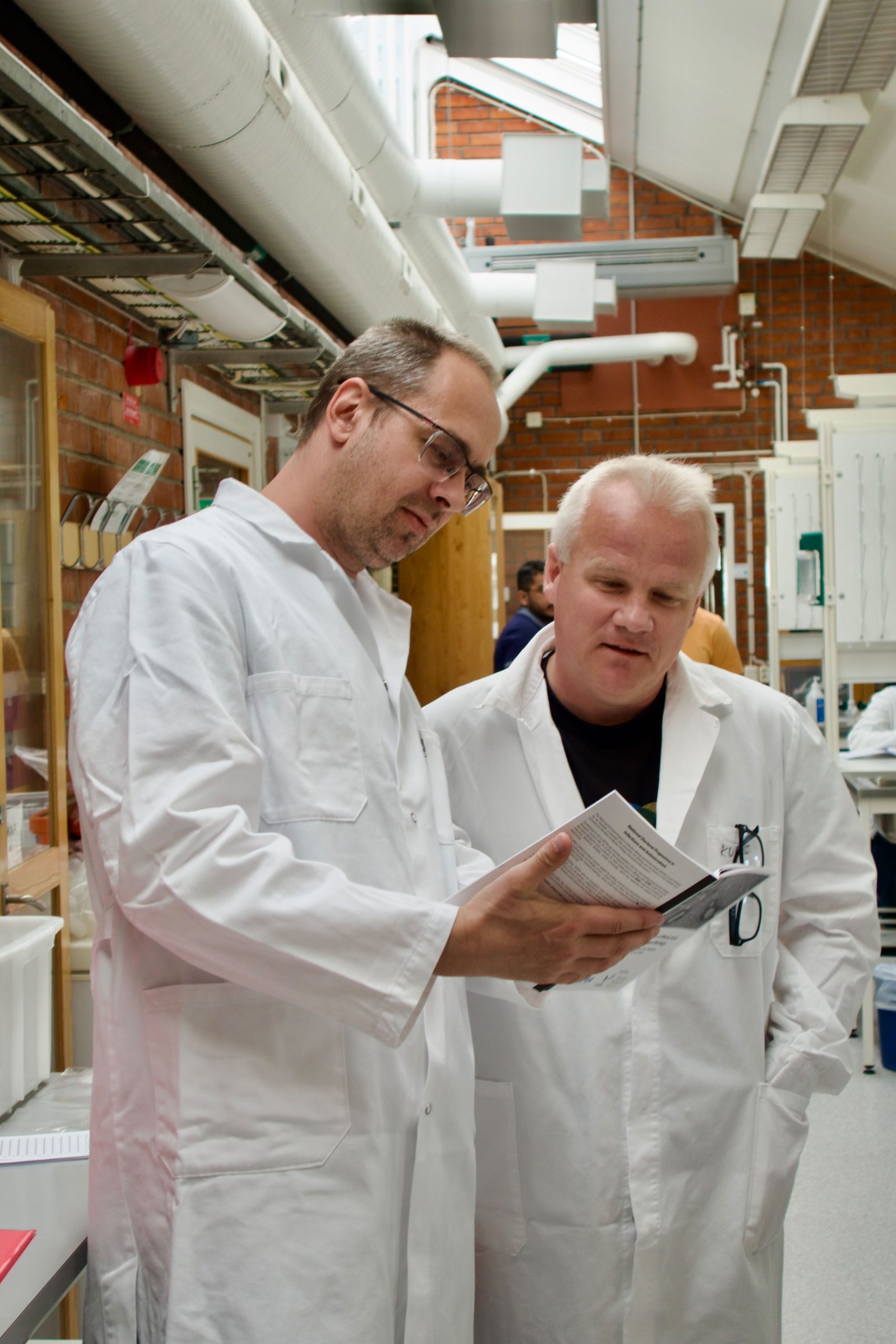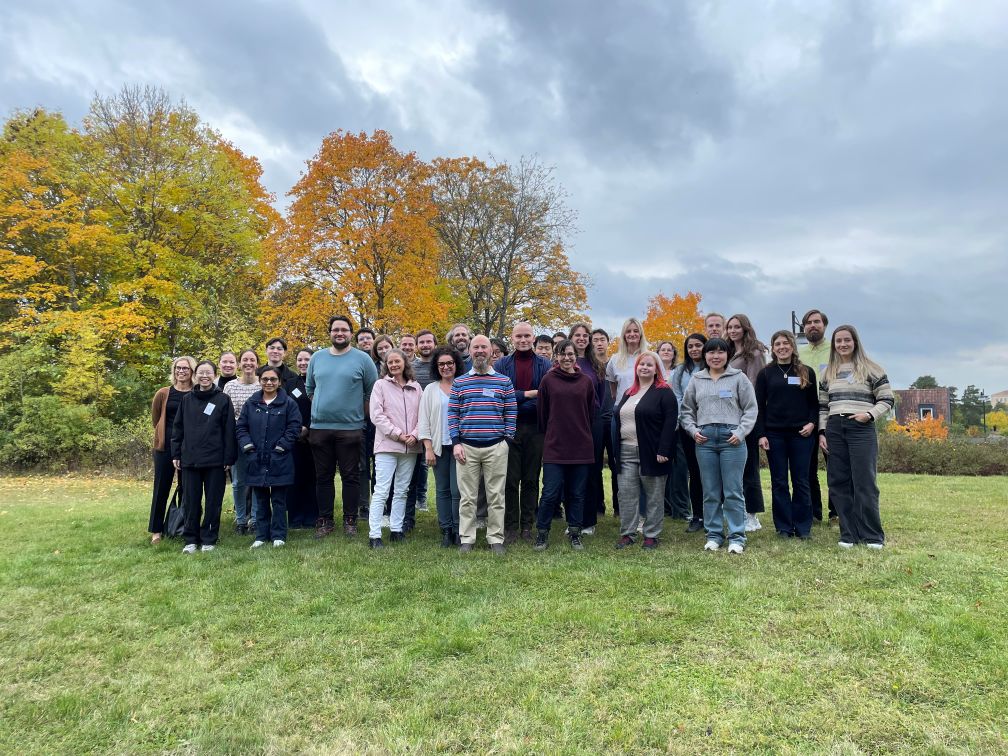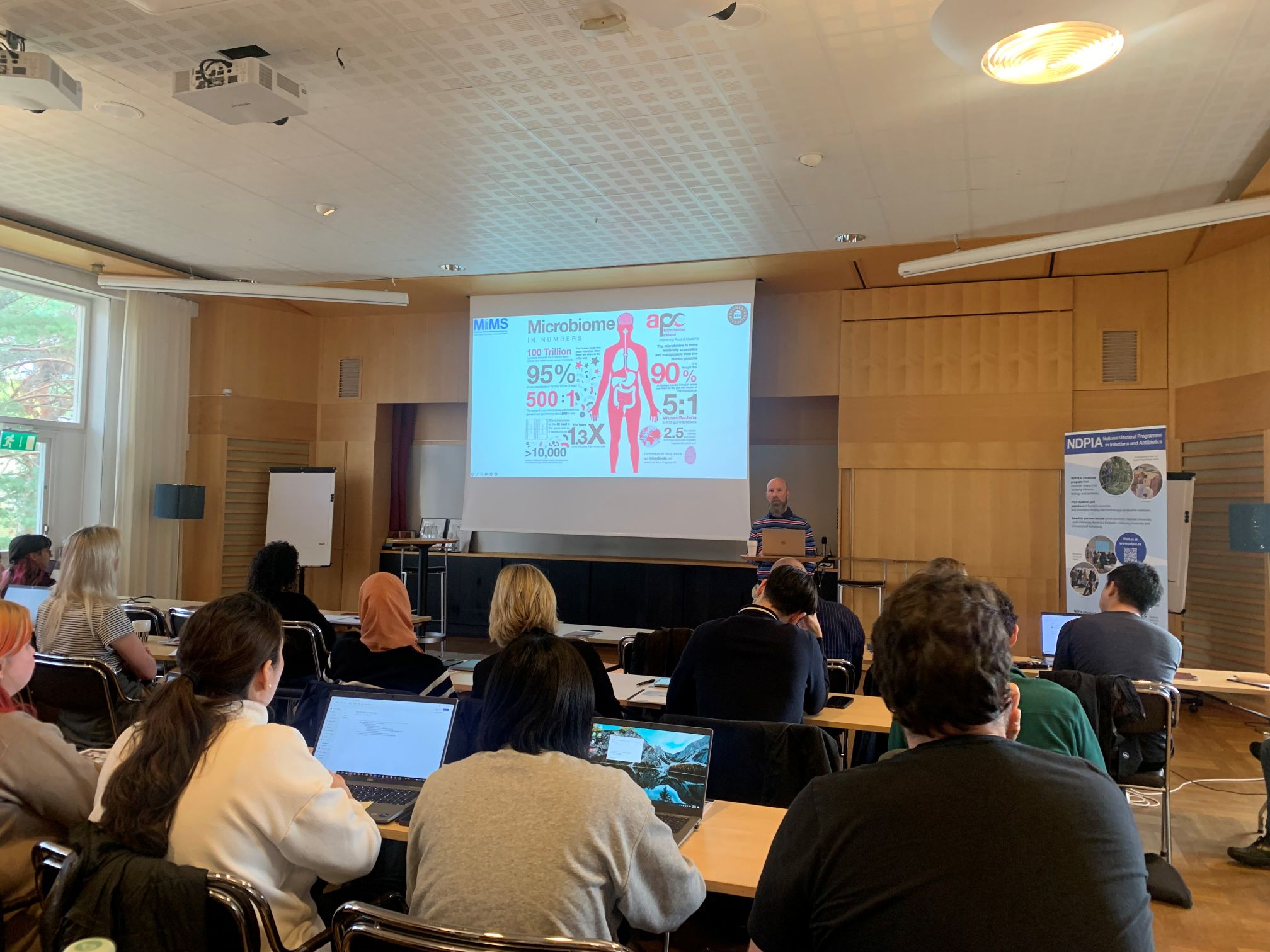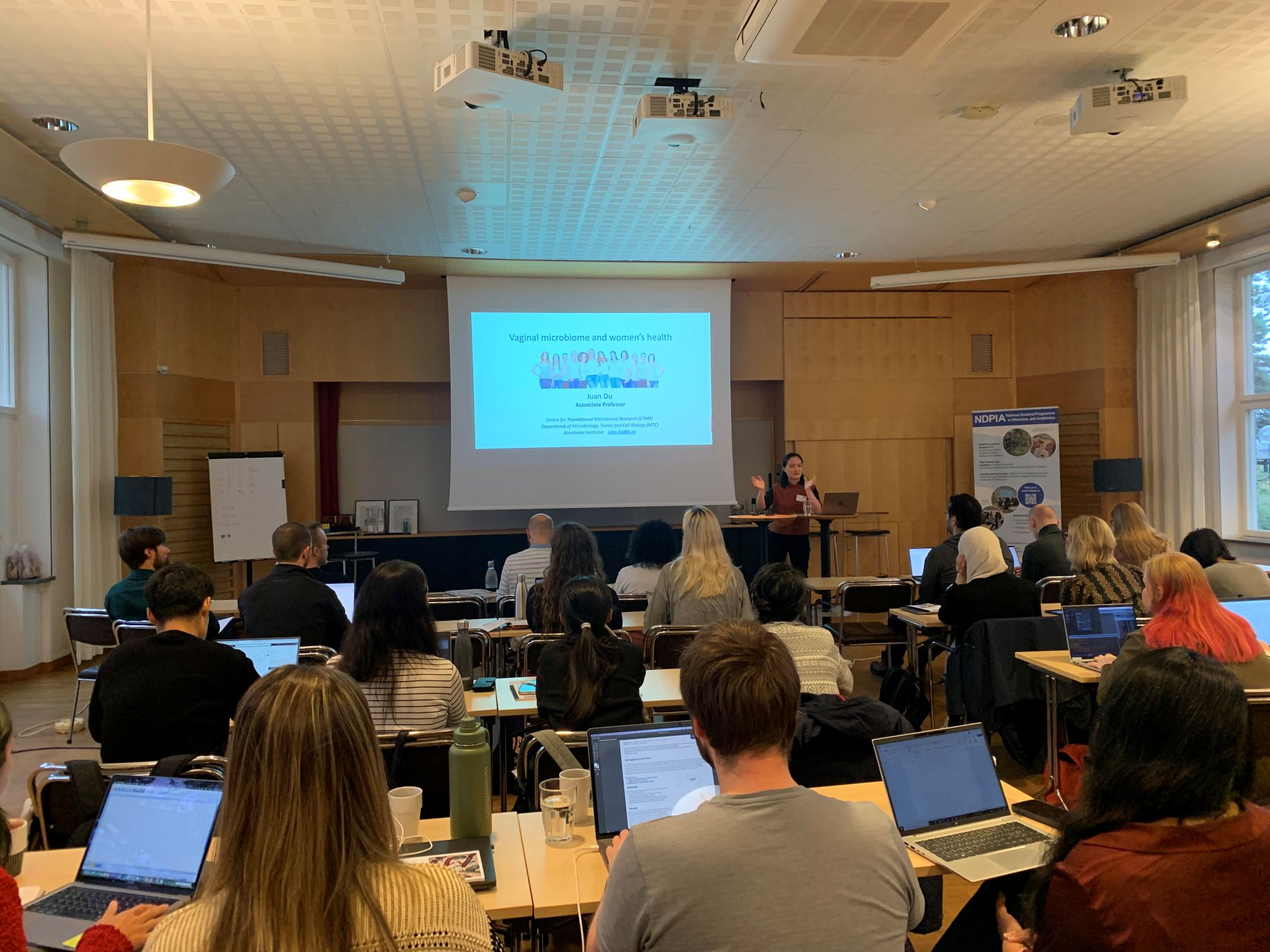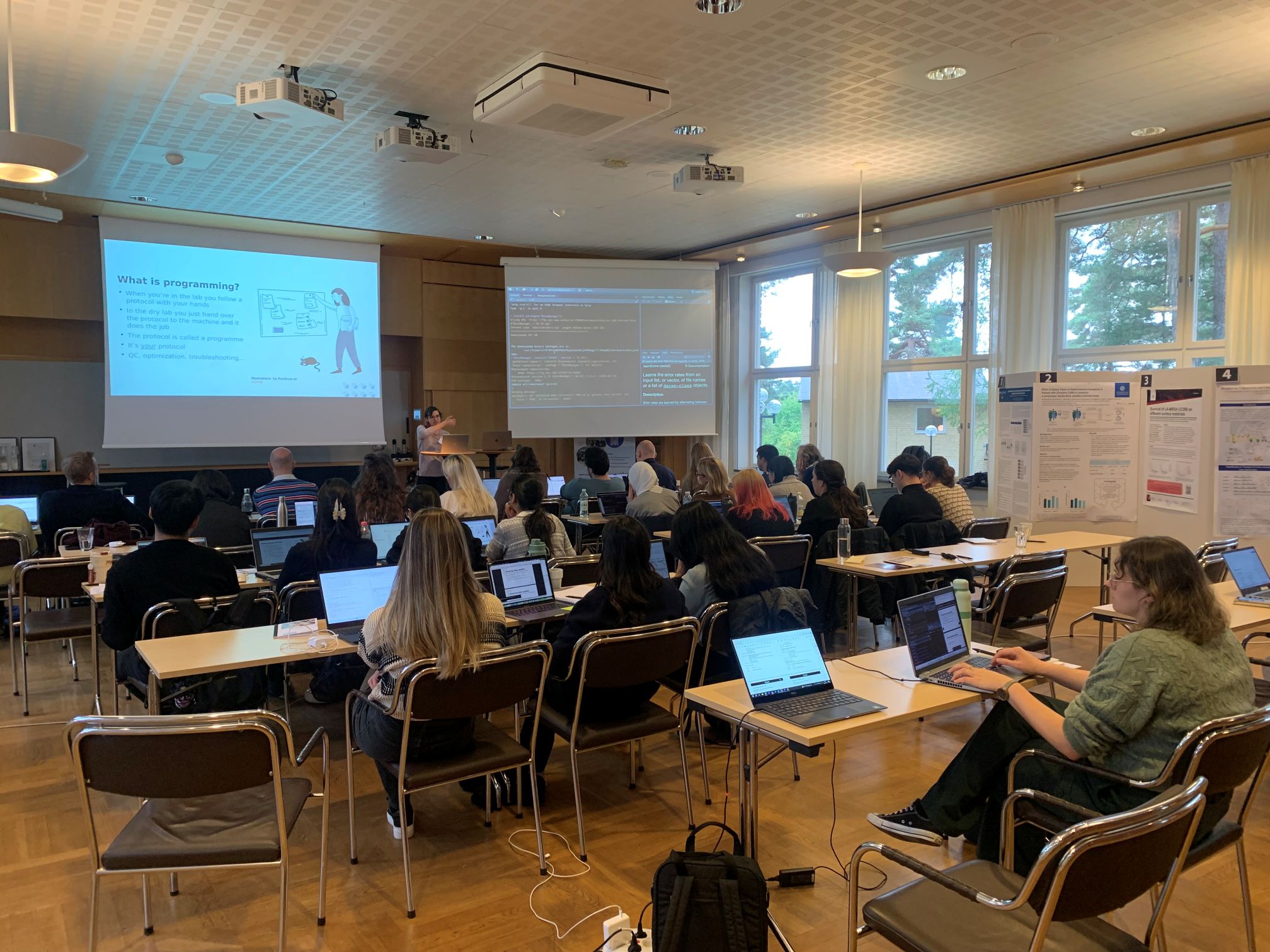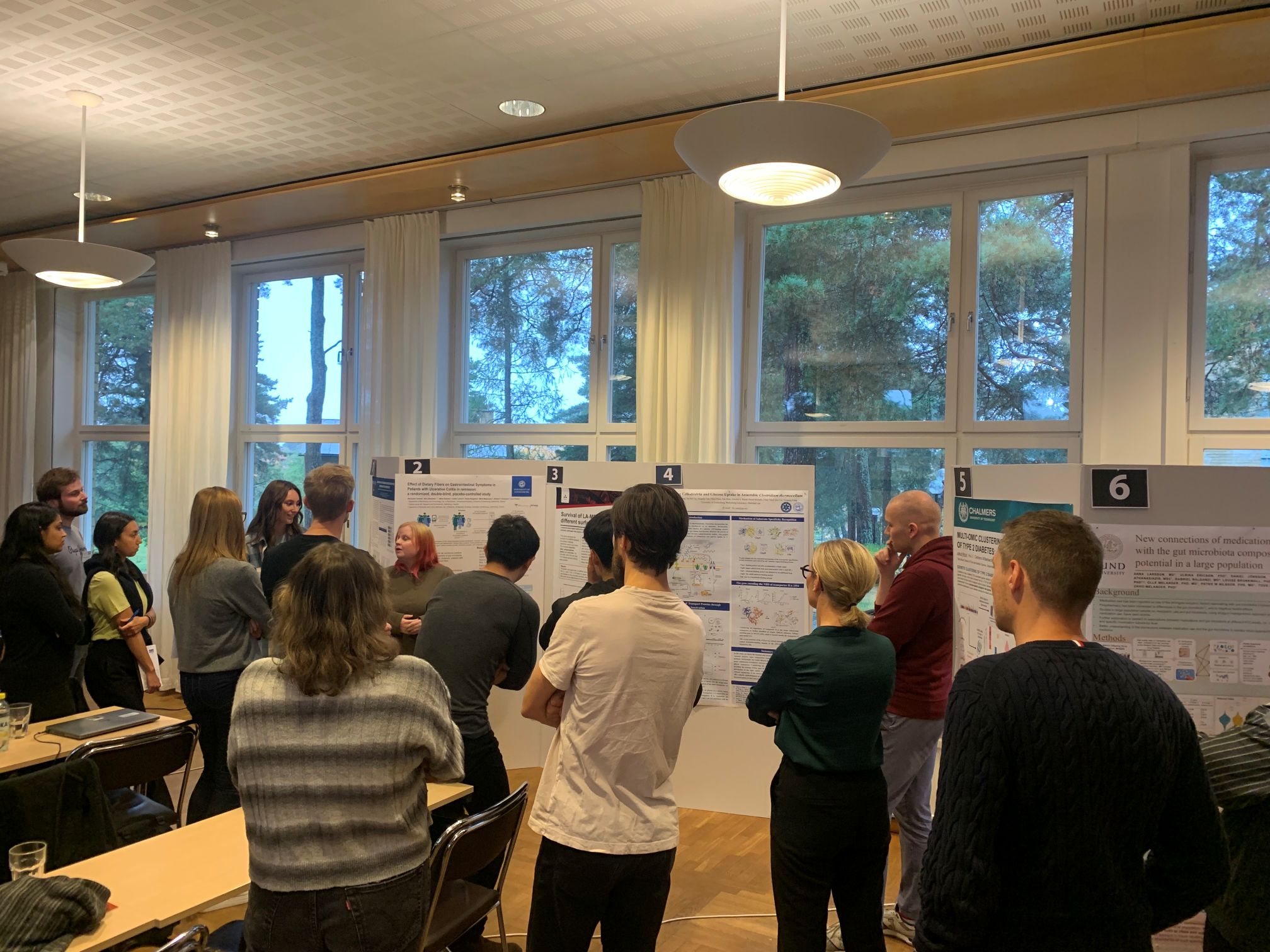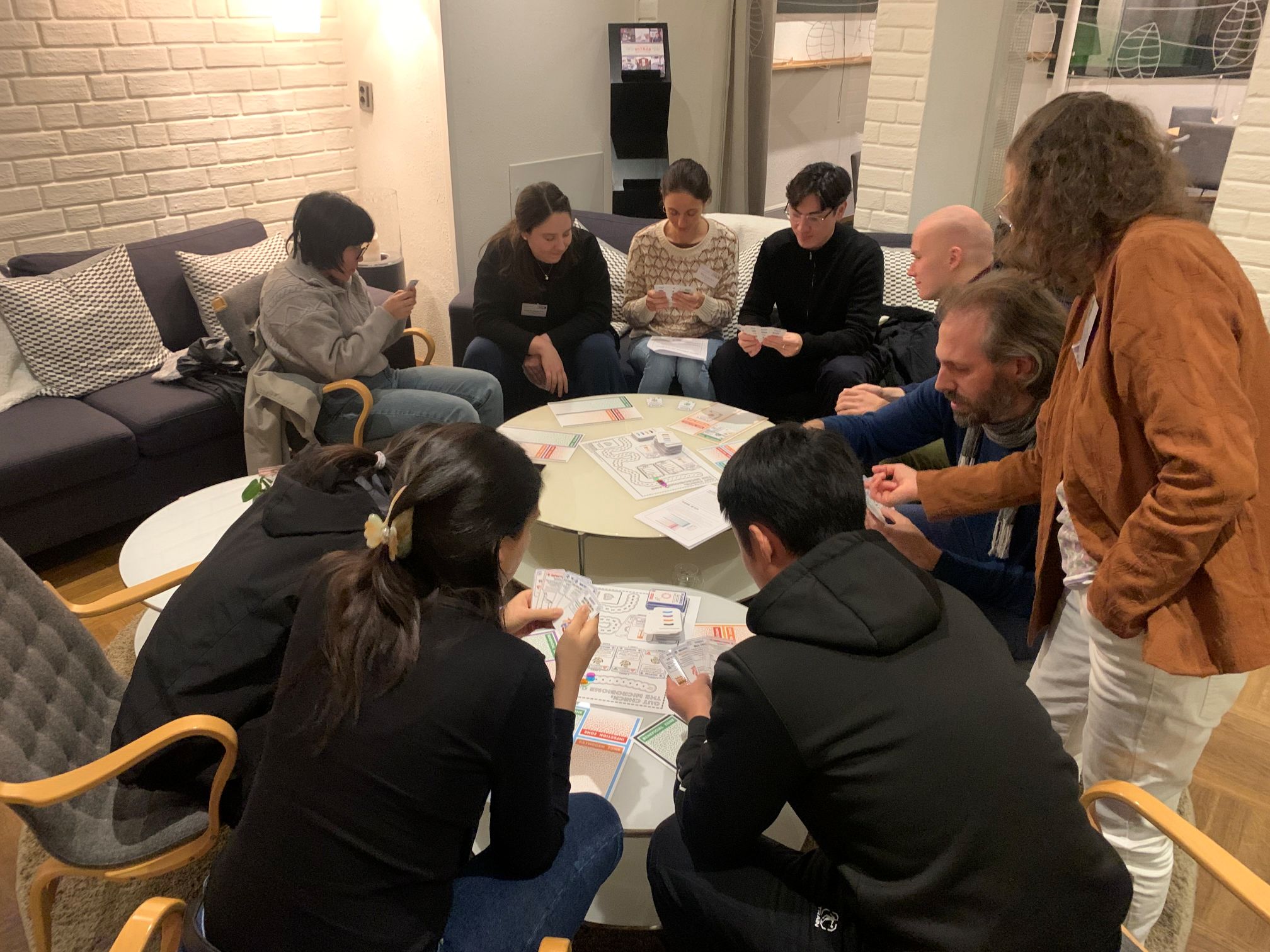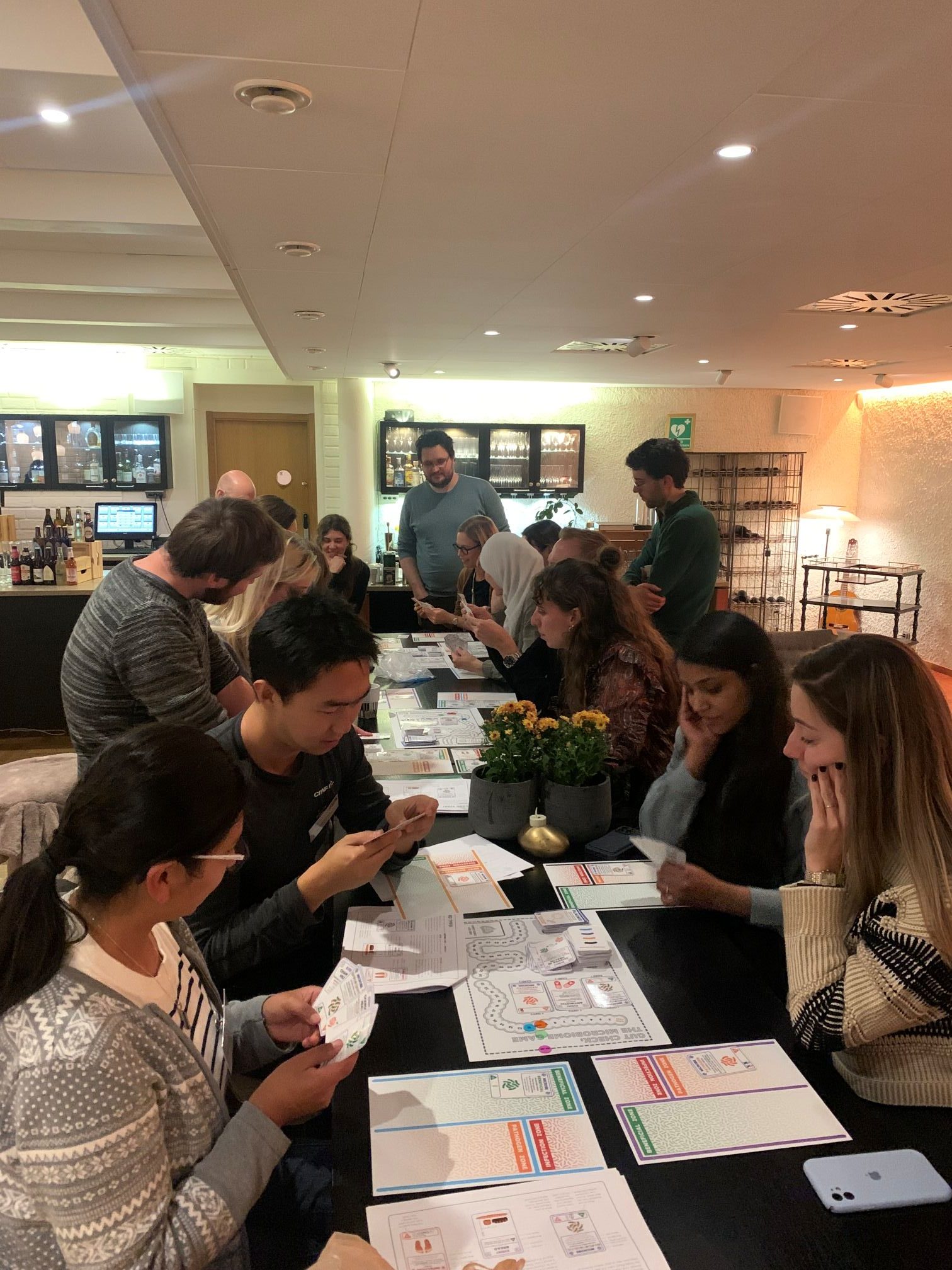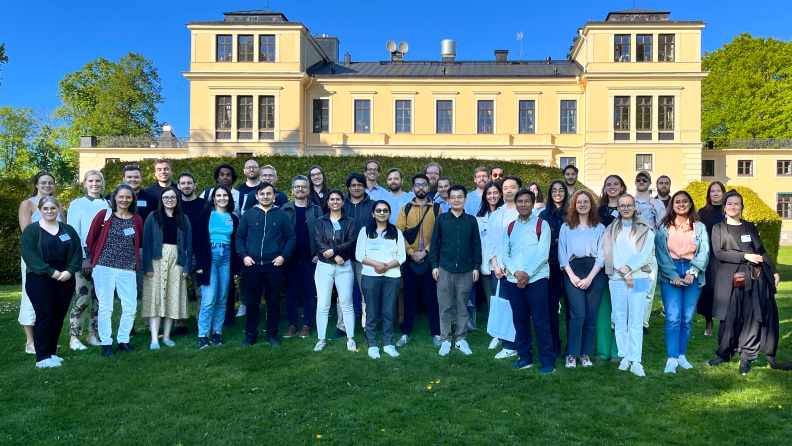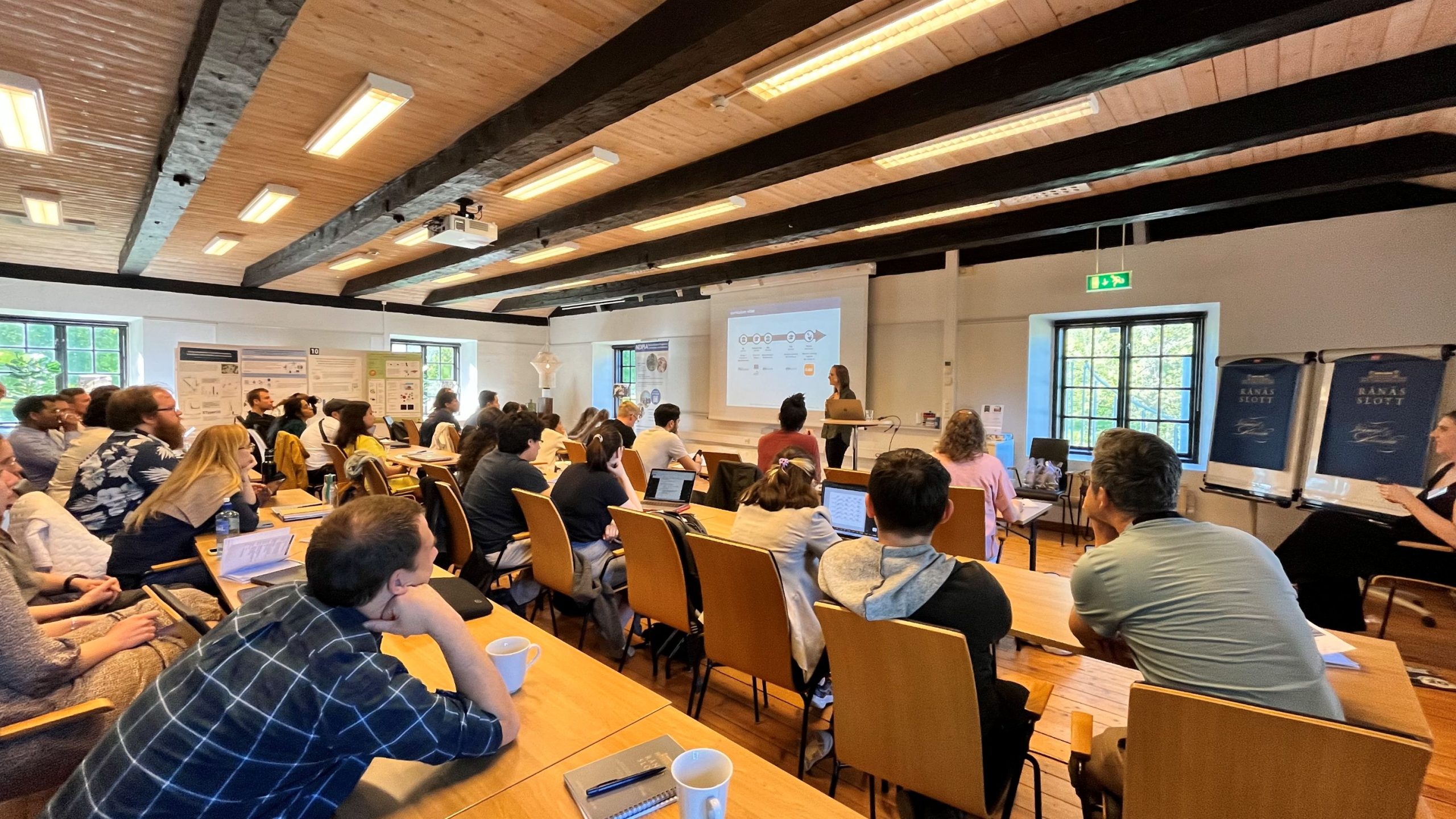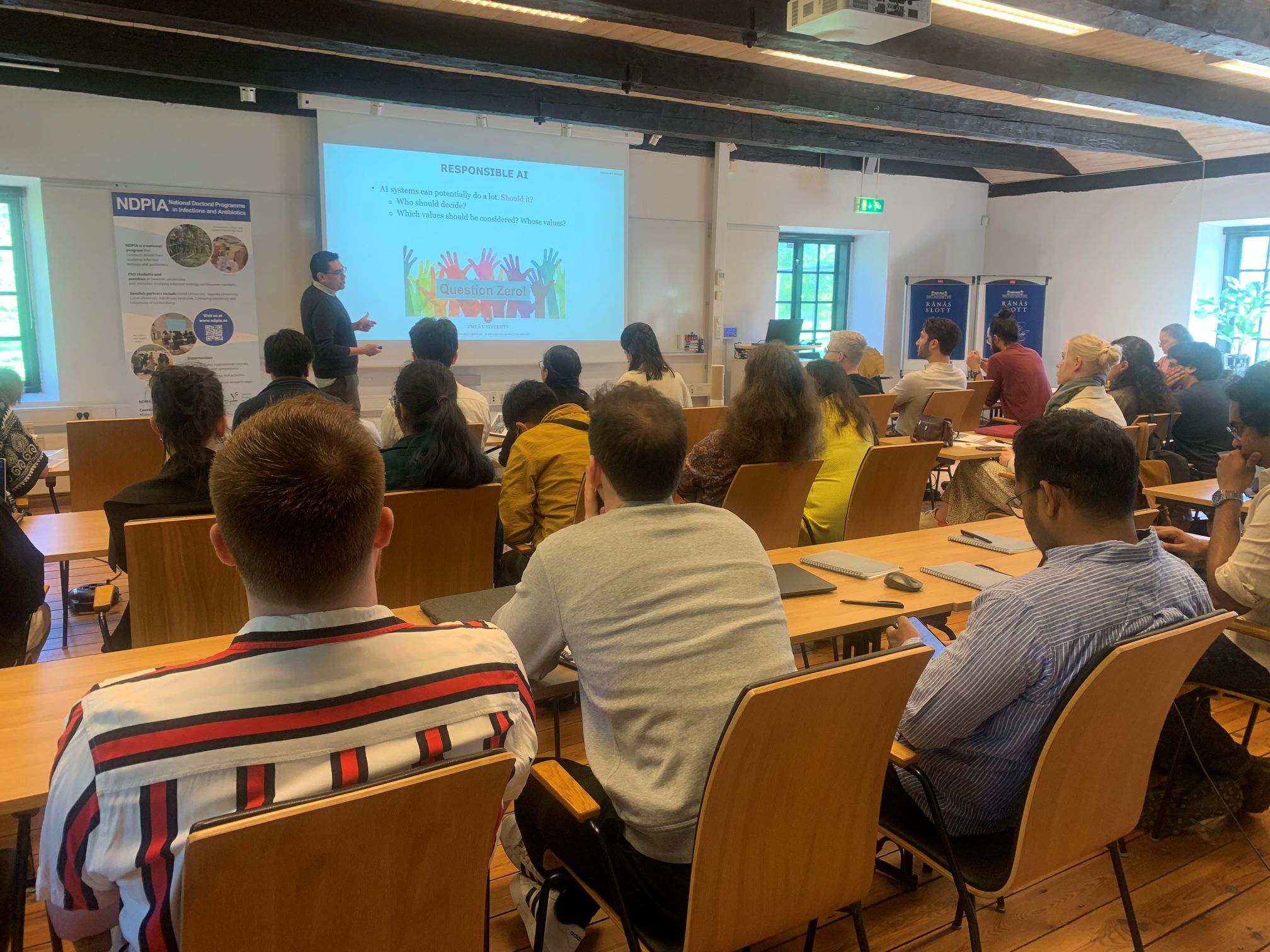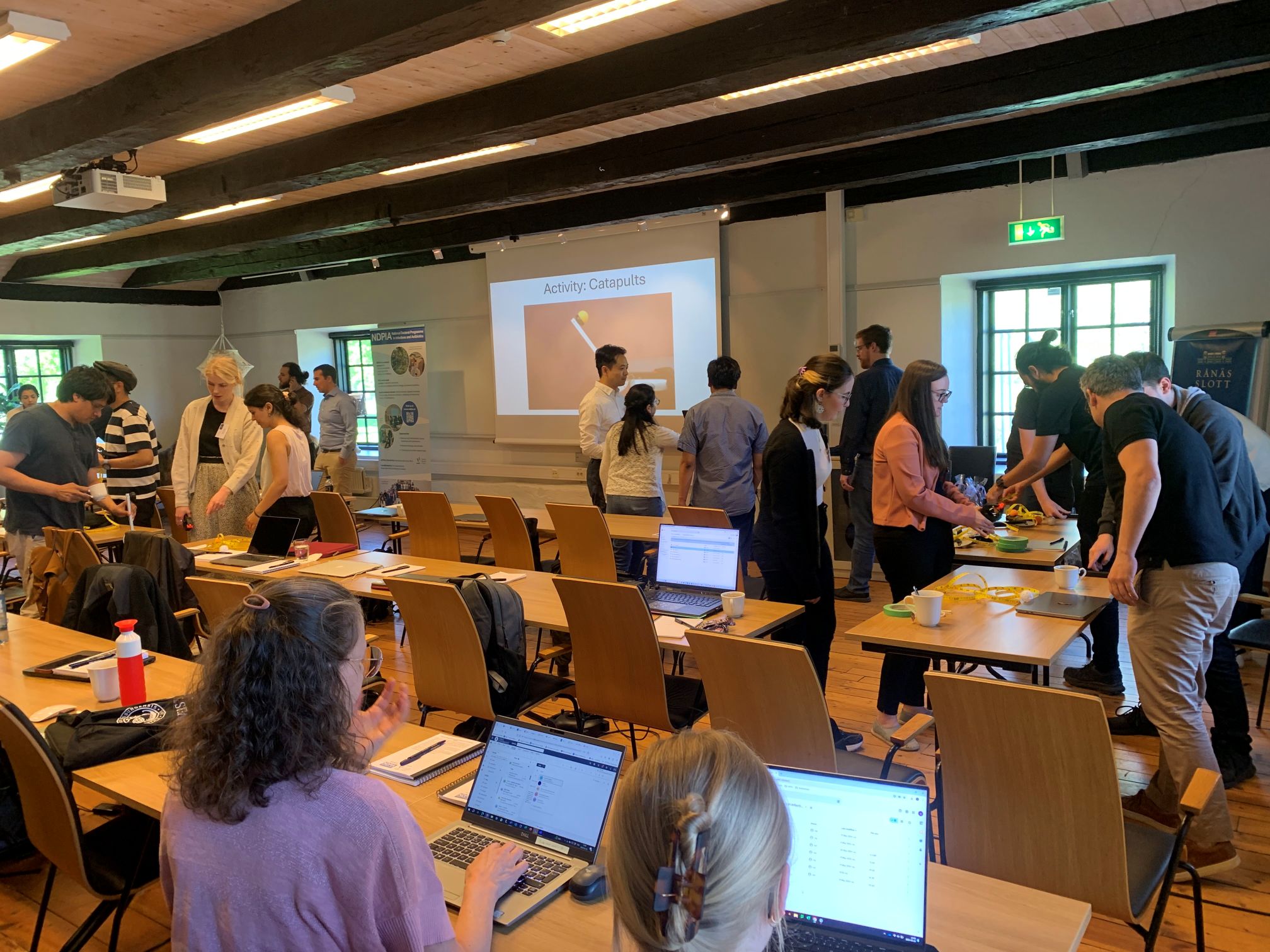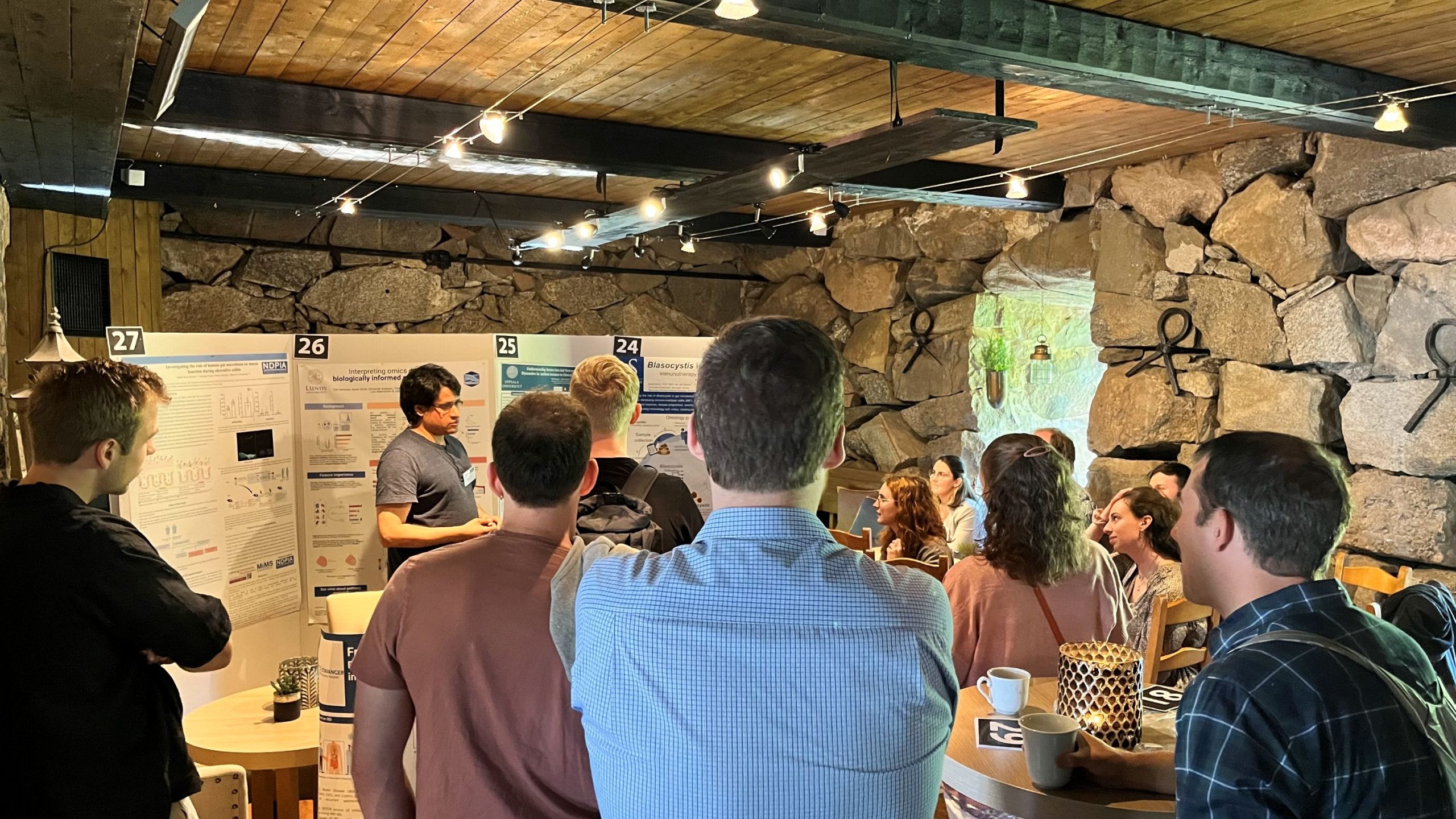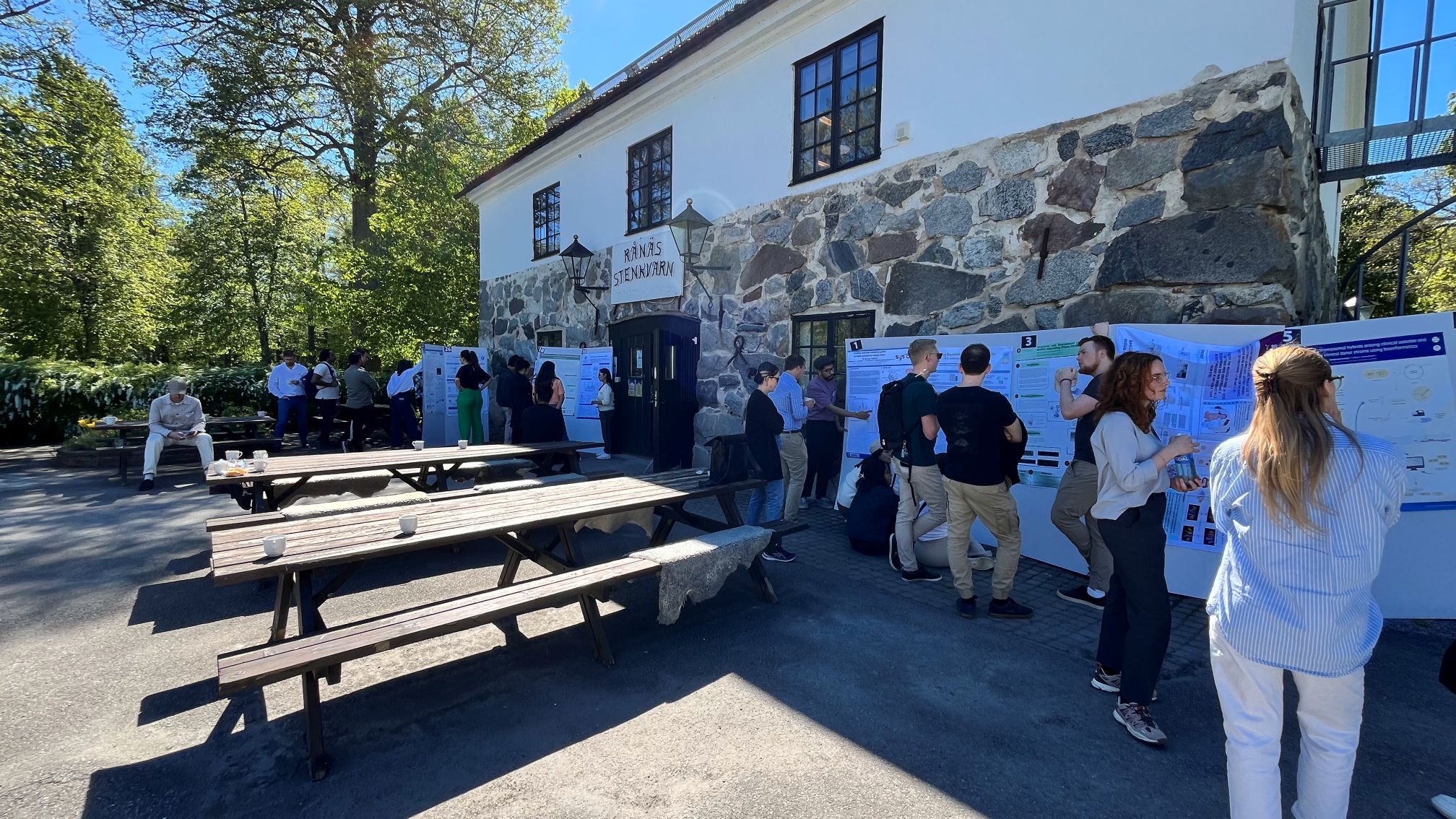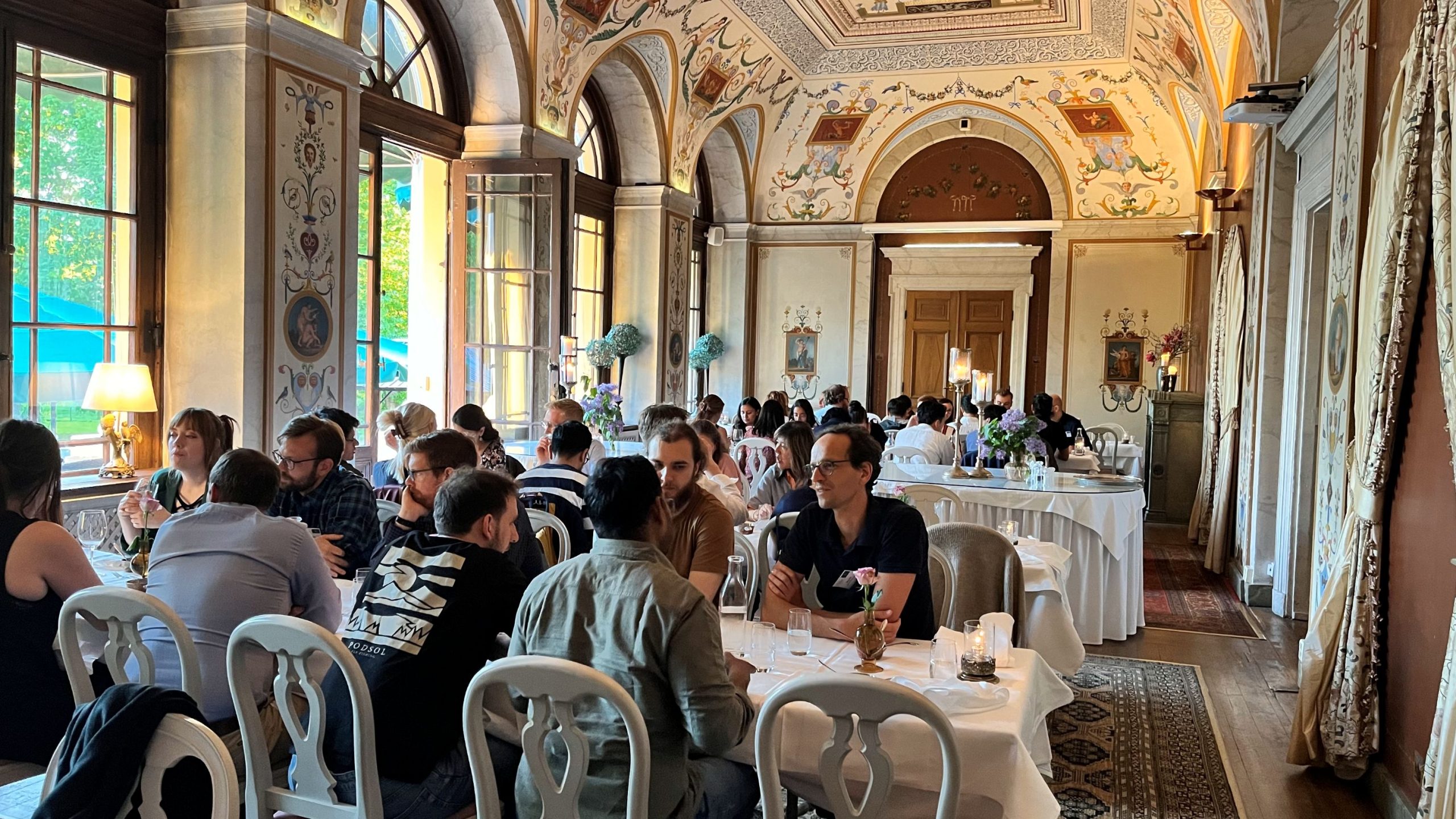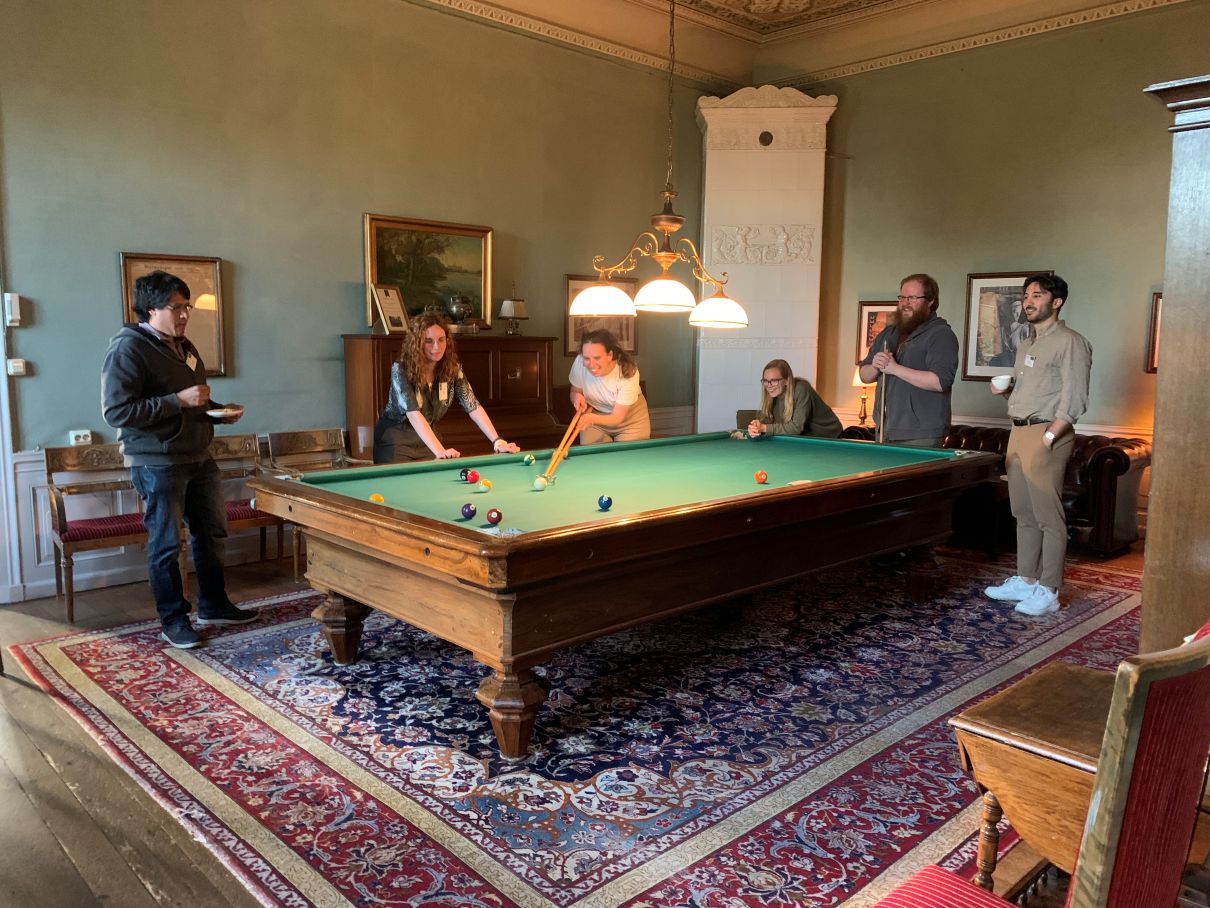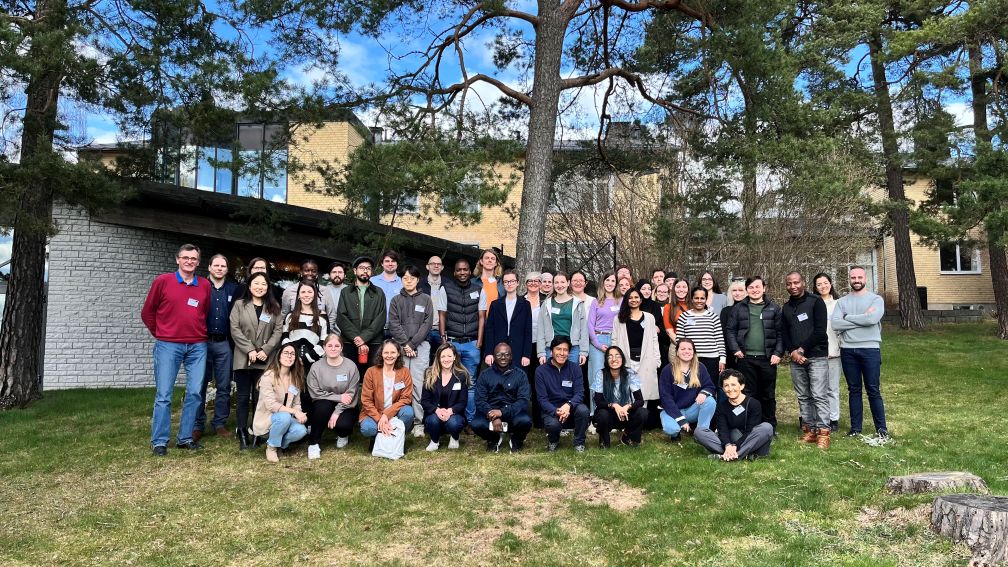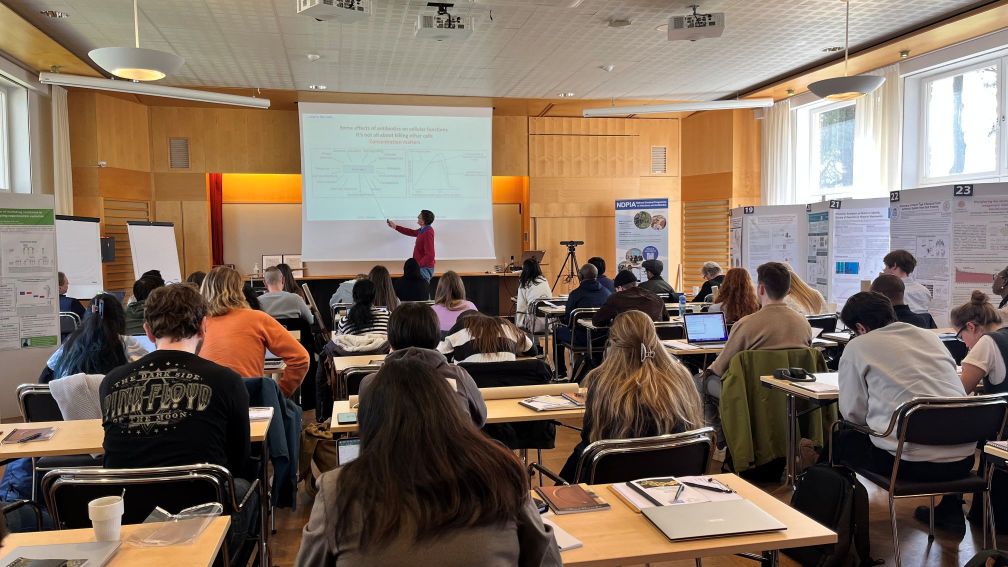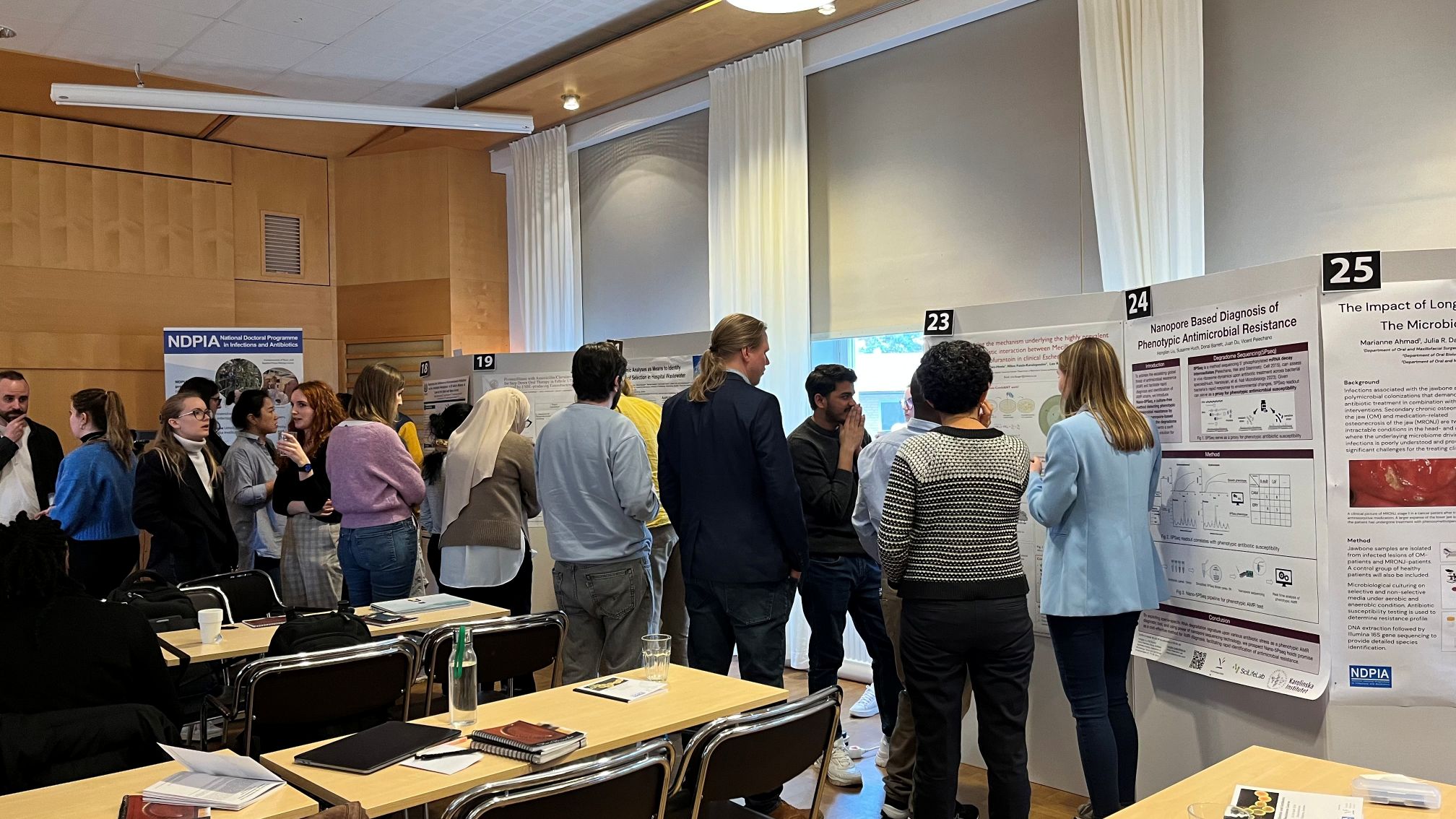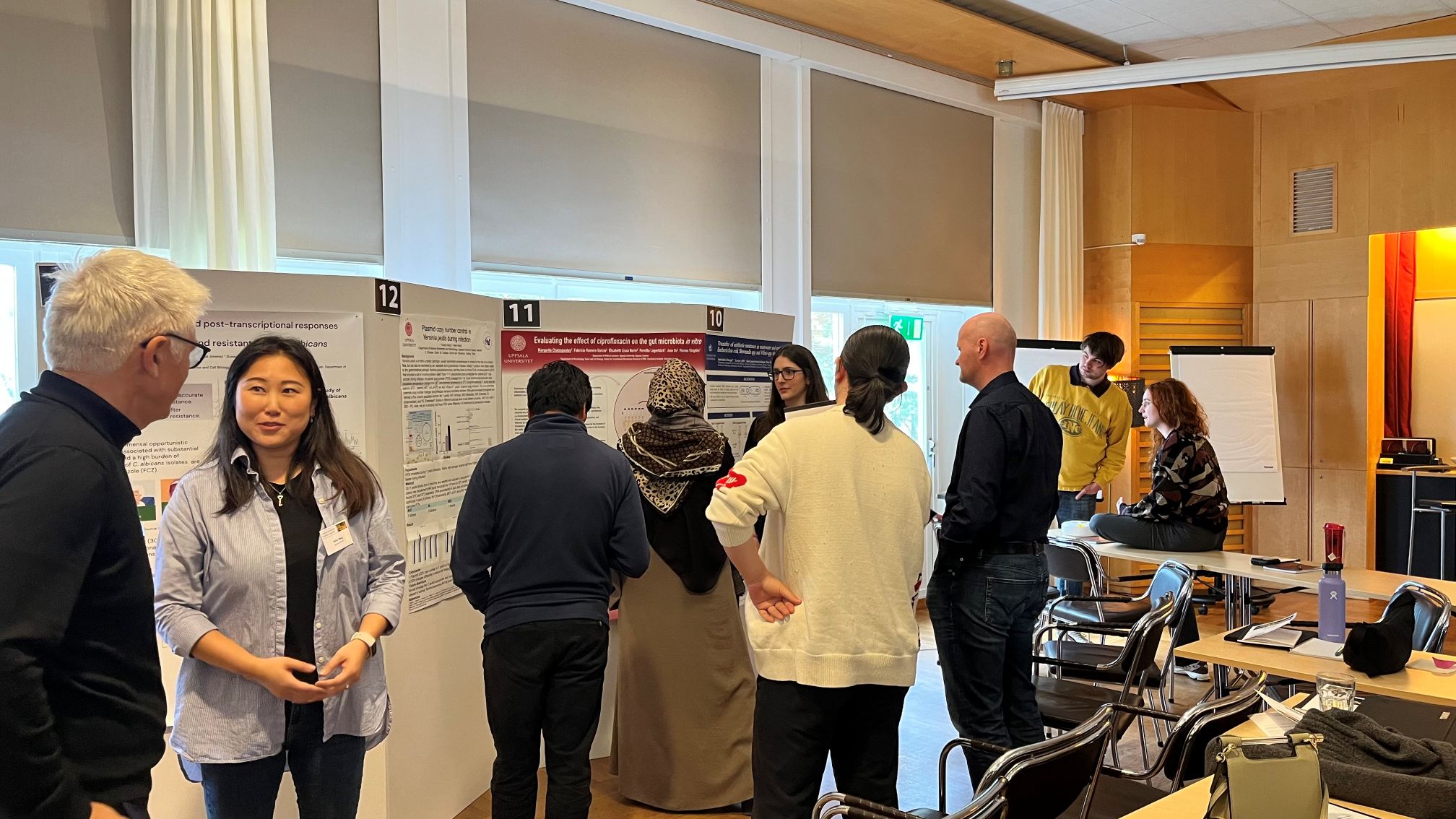22–24 October 2025 | Aronsborg Konferenshotell, Bålsta, Sweden
The 2025 Vaccine Development course brought together doctoral students and early-career researchers from across Sweden for three intensive days of learning and exchange. Held at Aronsborg Konferenshotell in Bålsta, this was the first course jointly organized by NDPIA and its sister school NDP-VIP, marking a successful collaboration that attracted participants from SLU, Karolinska Institutet, Lund University, Umeå University, the University of Gothenburg, and Uppsala University.
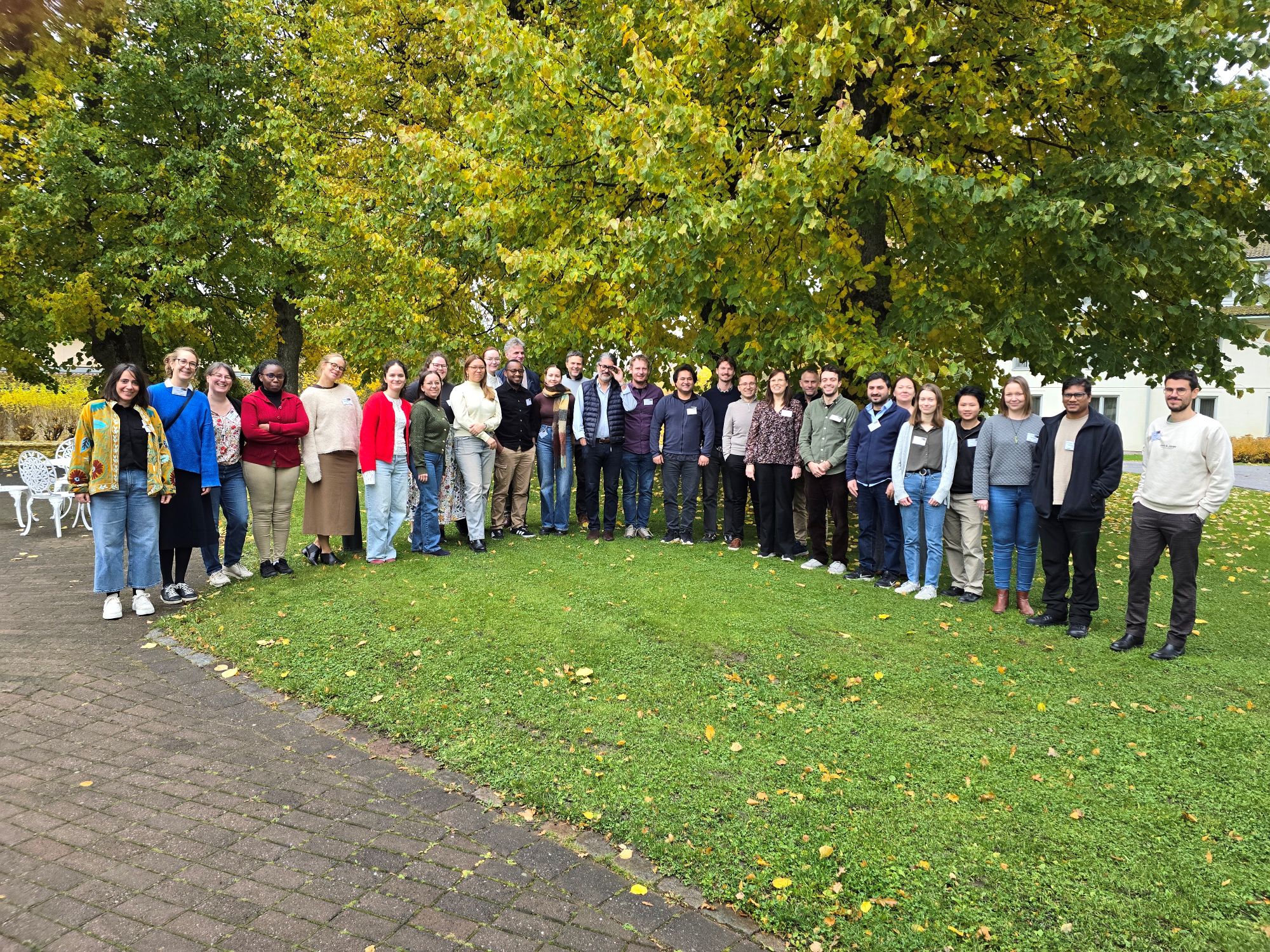 Group photo of the participants attending the Vaccine Development course in October 2025. Photo by staff at Aronsborg Konferenshotell.
Group photo of the participants attending the Vaccine Development course in October 2025. Photo by staff at Aronsborg Konferenshotell.
The course program spanned the full spectrum of modern vaccinology from the fundamentals of immune protection and classical vaccine platforms to next-generation technologies, GMP manufacturing, and regulatory pathways for vaccine approval. Participants also explored the scientific and practical challenges of developing vaccines against viral, bacterial, and parasitic infections, as well as specific topics such as travel and oral vaccines, cancer immunization, and determinants of vaccine effectiveness.
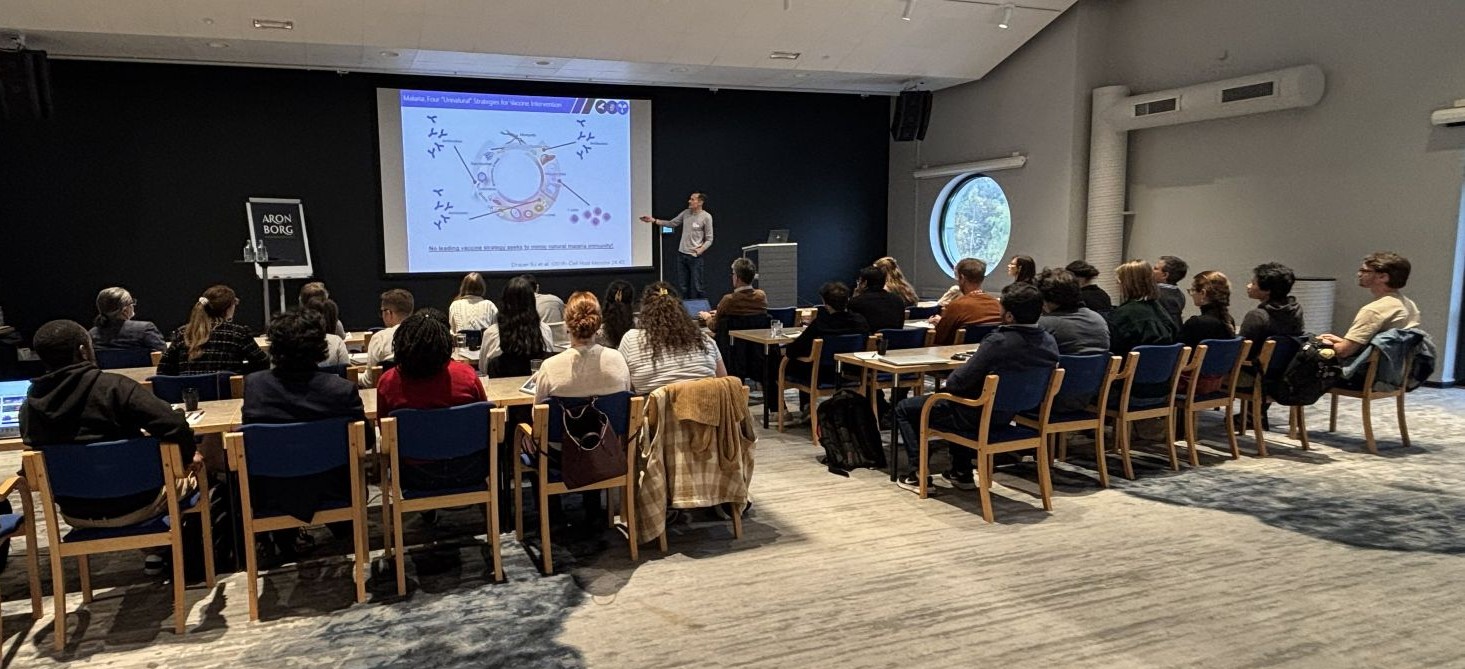 Lecture on “Challenges in vaccine development against parasitic diseases” given by Simon Draper, University of Oxford, UK. Photo by Louise Lindbäck.
Lecture on “Challenges in vaccine development against parasitic diseases” given by Simon Draper, University of Oxford, UK. Photo by Louise Lindbäck.
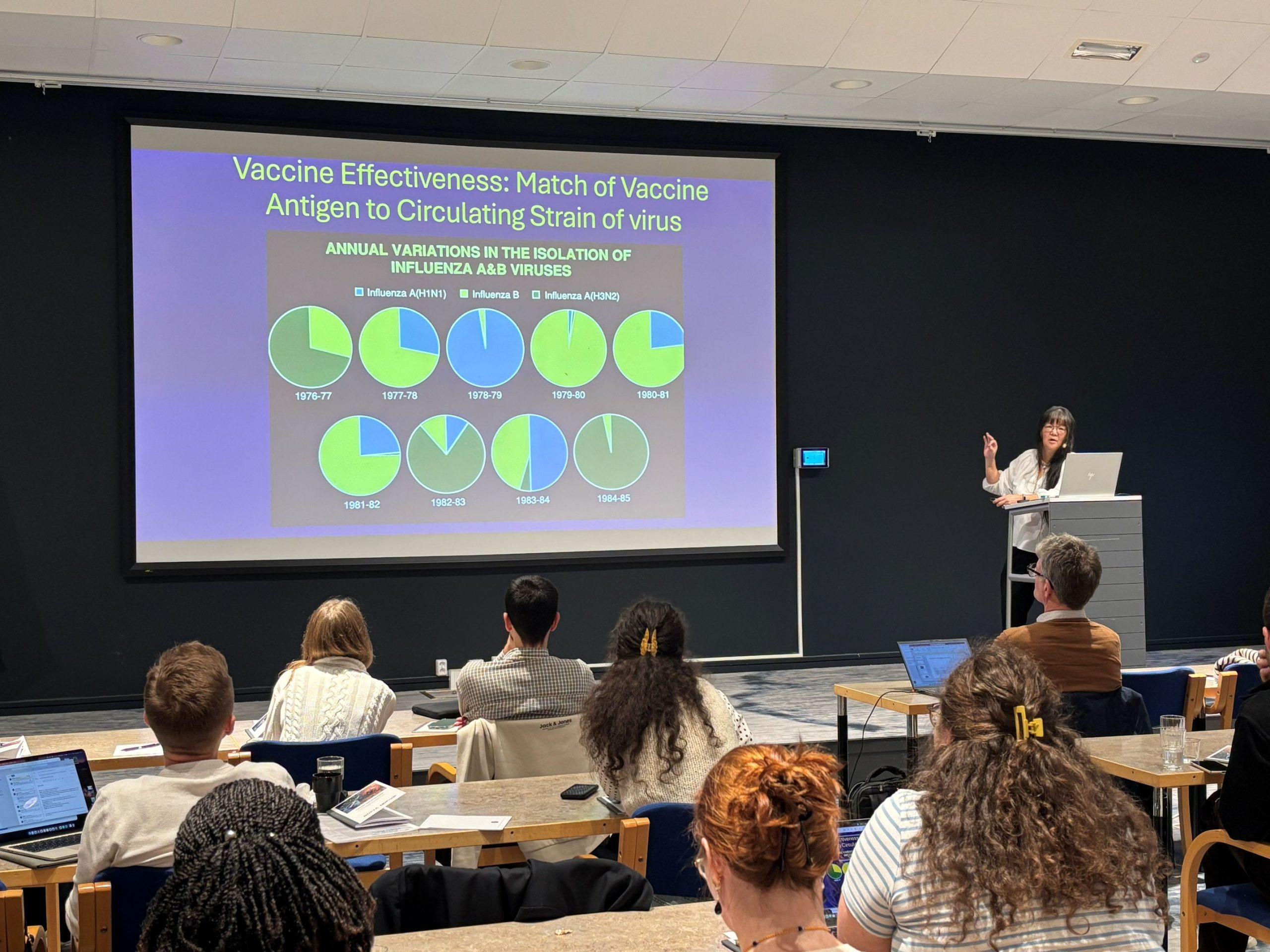 Lecture on “Determinants of vaccine effectiveness: vaccine mechanisms, host factors and the epidemiological impact of herd immunity” given by Margaret Liu, University of California San Francisco, USA. Photo by Louise Lindbäck.
Lecture on “Determinants of vaccine effectiveness: vaccine mechanisms, host factors and the epidemiological impact of herd immunity” given by Margaret Liu, University of California San Francisco, USA. Photo by Louise Lindbäck.
Beyond the lectures delivered by leading Swedish and international experts, the course emphasized interaction and collaboration. Poster sessions provided a platform for students to present their research, while informal networking and discussion sessions fostered scientific exchange and community building across disciplines and institutions.
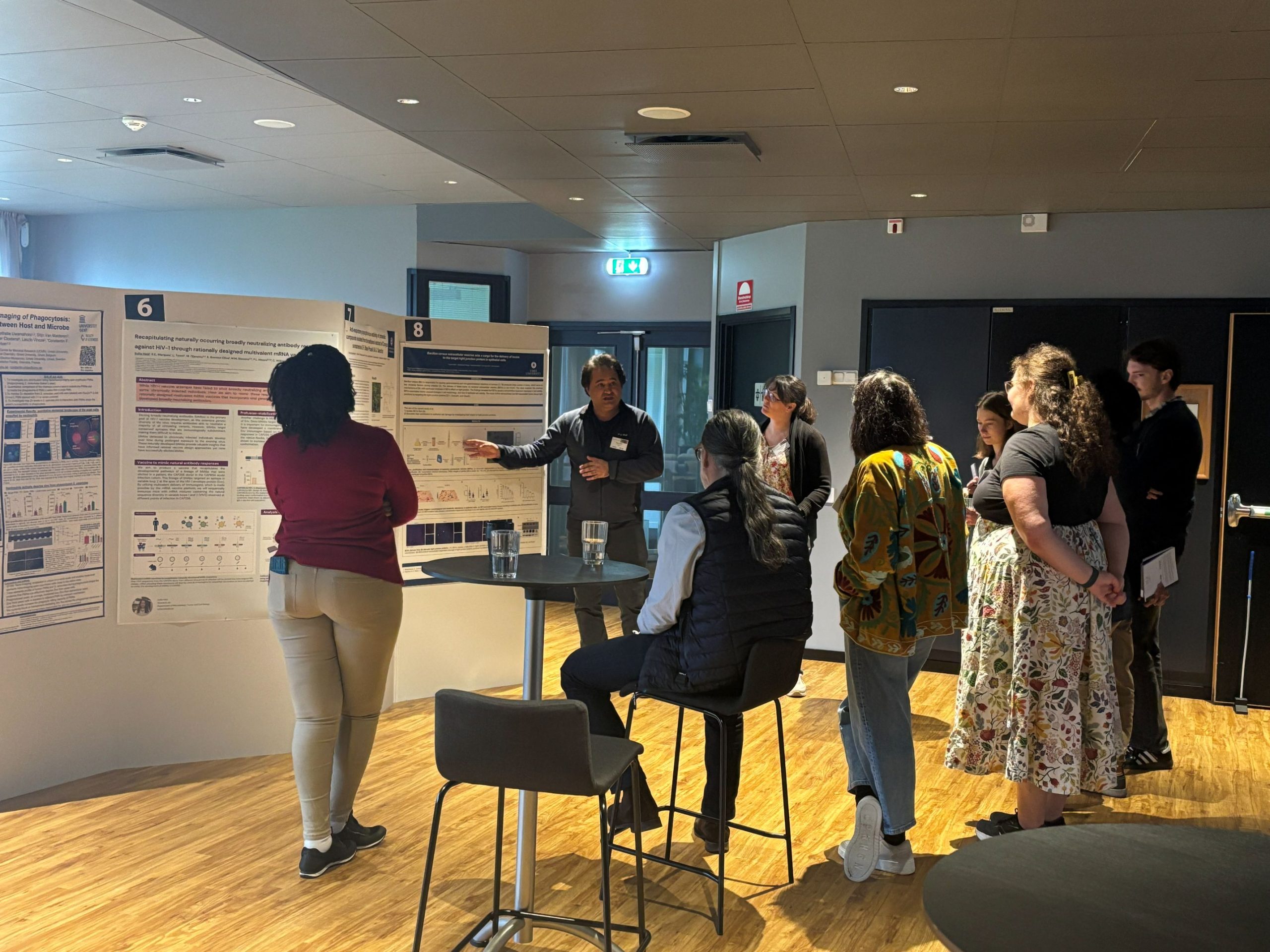 Students presented their research through engaging poster walks, fostering discussions and peer learning. Photo by Louise Lindbäck.
Students presented their research through engaging poster walks, fostering discussions and peer learning. Photo by Louise Lindbäck.
The Vaccine Development course not only deepened participants’ understanding of the science and strategy behind vaccine innovation but also strengthened the national research network dedicated to advancing immunology and infectious disease research.
To view the full course program, please visit: Vaccine Development 2025 | NDPIA
Special thanks to the organizing committee:
Ali Mirazimi, Karolinska Institutet, Sweden
Annasara Lenman, NDPIA and NDP-VIP Director, Umeå University, Sweden
Louise Lindbäck, NDPIA and NDP-VIP Project Coordinator, Umeå University, Sweden

